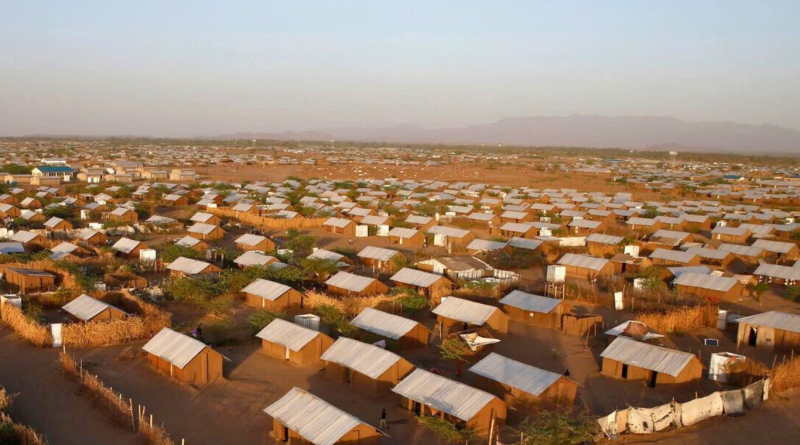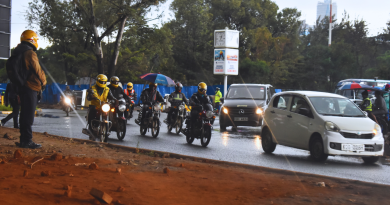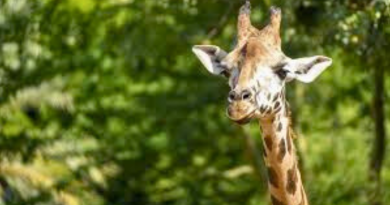Refugee Entrepreneurs in East Africa Get Boost for Green Innovation
By Chemtai Kirui
Nairobi – As the world marks World Refugee Day, a day that commemorates the strength and resilience of displaced communities, eighteen refugee-led social enterprises in Kenya, Uganda, and Ethiopia have received a combined KSh47 million ($365,000) to scale up clean energy projects, UK-based climate charity Ashden announced on Friday.
The funding is part of the Transforming Humanitarian Energy Access programme, which supports refugee-led startups deploying low-carbon technologies such as solar irrigation systems, fuel-efficient cookstoves, and briquette-making equipment in displacement settings.
World Refugee Day, established by the United Nations in 2000, is observed each year on June 20. The date also coincides with Africa Refugee Day, which has long been commemorated across the continent. The day raises awareness about the rights, needs, and contributions of forcibly displaced people and promotes global responsibility in protecting them.
This year’s theme, Solidarity with Refugees, highlights the importance of standing with refugees as they rebuild their lives.
Ashden says the grant programme, delivered in partnership with Mercy Corps and the UN Institute for Training and Research’s Global Platform for Action on Sustainable Energy in Displacement Settings (UNITAR-GPA), aims to scale production, expand access to clean energy, and create green jobs in refugee communities.
“This is a moment of global uncertainty, with the number of forcibly displaced people at a record high, and brutal aid cuts putting many millions at risk,” said Isona Shibata, Ashden’s Head of International Programmes. “It’s vital we accelerate refugee-led initiatives that address both energy poverty and climate change.”
Kenya’s refugee and asylum-seeker population stood at over 812,000 as of October 2024, with most living in settlements such as Kakuma and Dadaab, according to the UN refugee agency.

- Photo: Solar on a small food shop in Kakuma-Kalobeyi settlement Northern Kenya. Solar power is vital for small entrepreneurs to make a livelihood inside the camps. Credit: Isona Shibata/Ashden
In Kakuma-Kalobeyi settlement, home to nearly 300,000 refugees, one of the grant recipients, Okapi Green Energy, is providing solar systems to small businesses—enabling them to stay open longer, store refrigerated goods, and offer phone-charging services.
Established in 2018, the refugee-led company provides affordable solar energy to camp residents.
In an earlier interview, Vasco Hamisi, Chief Executive of Okapi Green Ltd, said expanding access to clean energy in Kakuma was essential for community development.
“Most residents here have long relied on expensive and unreliable energy sources,” he said. “Our initial efforts connected just one percent of the 200,000 people living in Kakuma, but this next phase marks a significant step forward. Energy access is foundational for community development and essential services.”
Also benefiting from the funding is Live in Green, a social enterprise founded by a Congolese refugee in Uganda’s Kyaka II settlement.
The initiative turns agricultural and household waste into clean cooking briquettes, serving thousands of families while easing pressure on local forests caused by firewood demand.

- Live in Green’s briquette drying warehouse in Kyaka II refugee settlement, Uganda. The briquettes, made from natural waste products, provide a quadruple benefit of providing a cleaner fuel, recycling waste, reducing deforestation, and providing an income source for people in the camp. Credit: Isona Shibata/Ashden
Officials at Live in Green say that the grant received will help scale up production and support employment within the community.
Also in Uganda, the South Sudanese Women Building Association in Kiryandongo settlement is set to expand solar-powered grain milling services for smallholder farmers in both refugee and host communities.
Programme officials say the funding will also support entrepreneurship training for women and youth, while raising awareness of clean energy solutions across the settlement.

- A woman uses biogas to replace firewood for cooking in a refugee settlement in Uganda. Credit: BUAK/Care Denmark
While the Ethiopian, Muruqmal Energy & Electric Cooperative in Helaweyn refugee settlement will use its grant to replace diesel-powered generators with a solar microgrid.
More and more refugee innovators across the globe are stepping forward to challenge the narrative that refugees are a burden. They are showcasing their work, building businesses, and proving that refugees are an asset to their host communities.
Refugee-led enterprises often drive local economic growth. In Kenya’s Kakuma settlement alone, refugee businesses generate an estimated KSh6 billion (about $56 million) in annual economic activity. In Uganda, research shows that 99% of refugees earn their own income, and many even employ host community members.
Meanwhile, a joint World Bank–UNHCR report suggests that allowing refugees to fully participate in the economy could reduce the need for aid from $62 billion to just $6 billion.
As the world commemorates this day, Ashden says that supporting clean energy innovation is key to transforming refugee communities adding that, ‘clean energy initiatives lower operating costs, improve health, and expand off-grid access for households and small businesses’.
The organization adds that refugee-led energy enterprises are not just filling gaps—they are building resilience, improving public health, and unlocking long-term economic opportunity in some of the world’s most fragile settings.
This year’s World Refugee Day, comes amid record levels of displacement. According to the UNHCR, more than 120 million people were forcibly displaced in 2024 due to conflict, persecution, and climate-related disasters.




